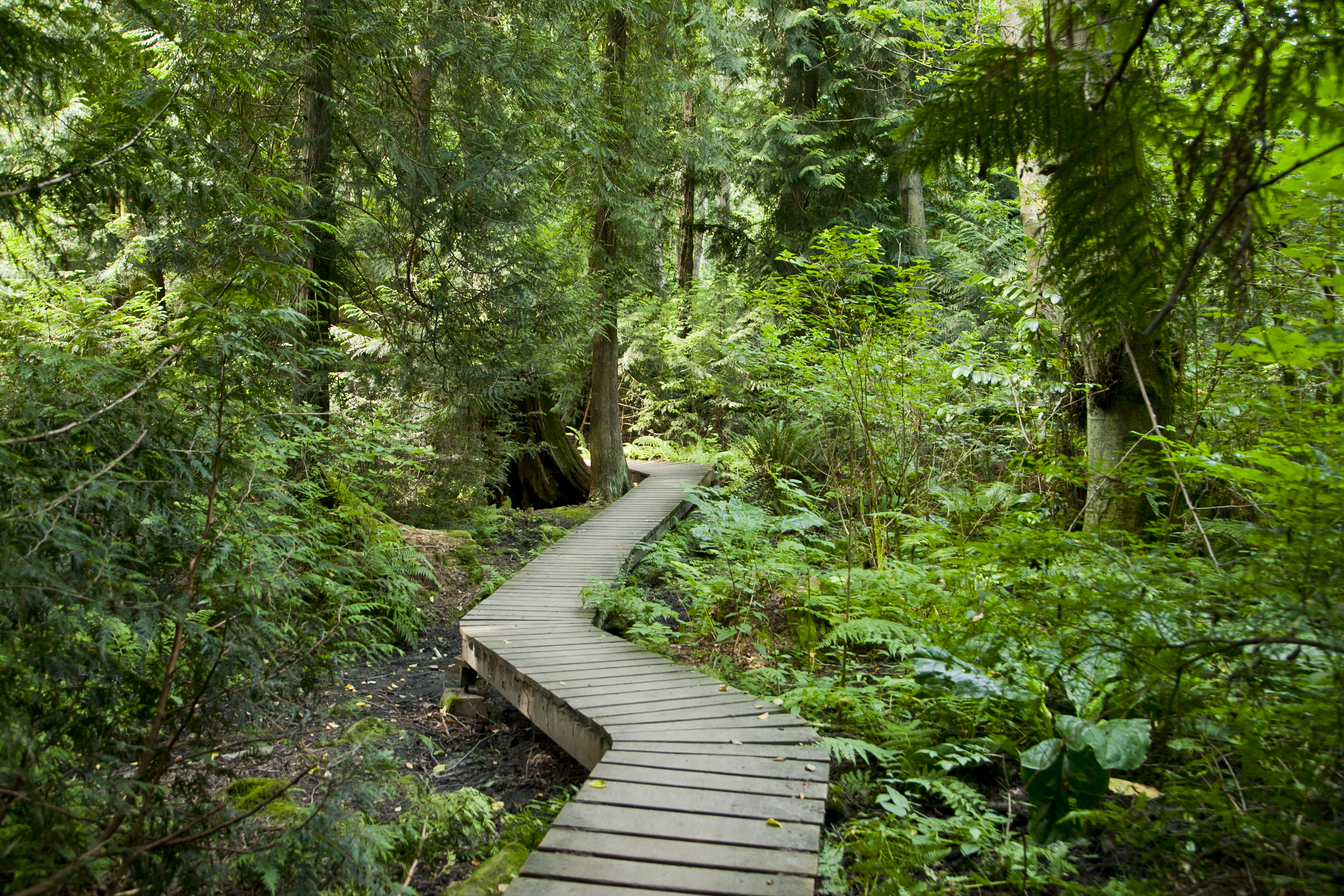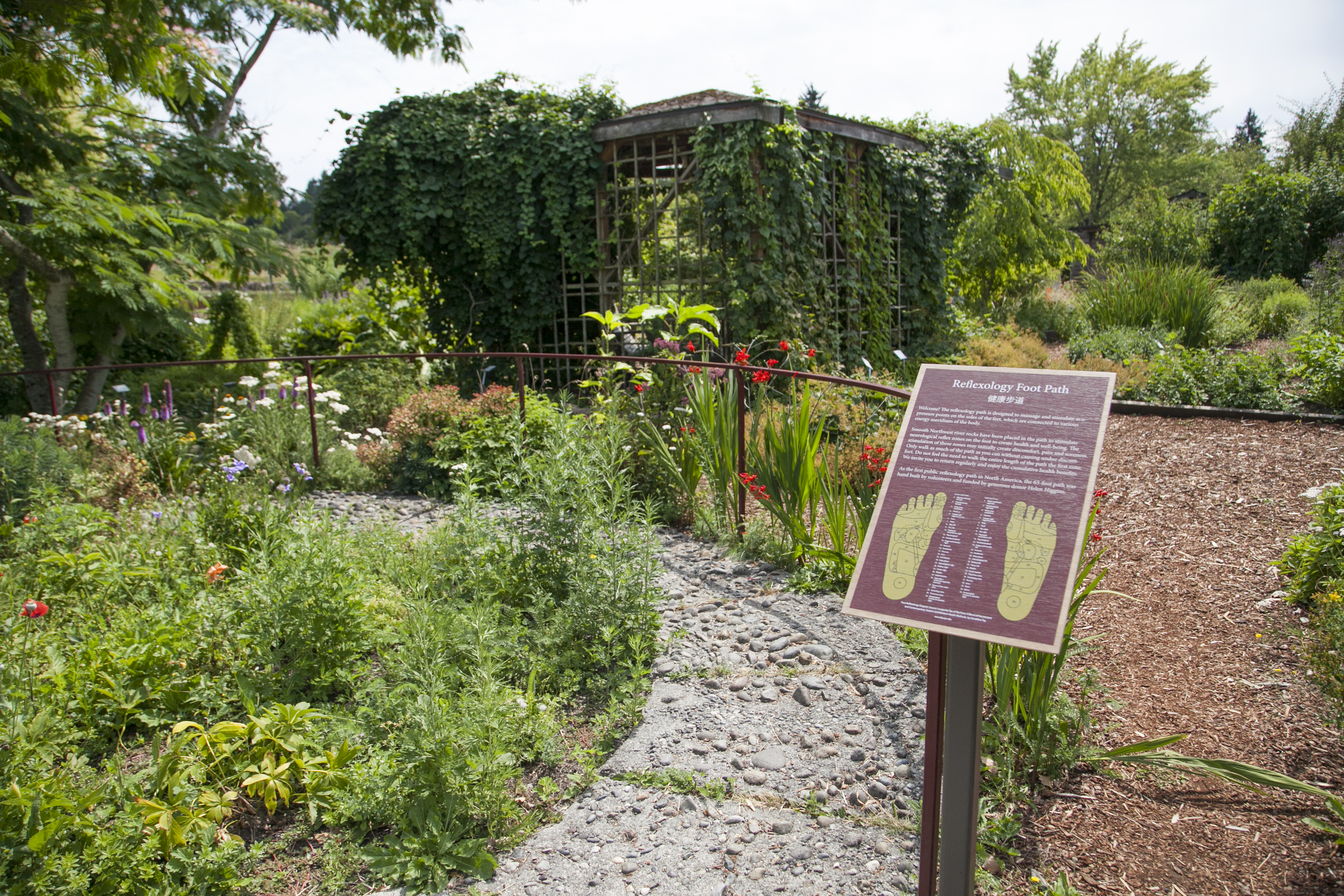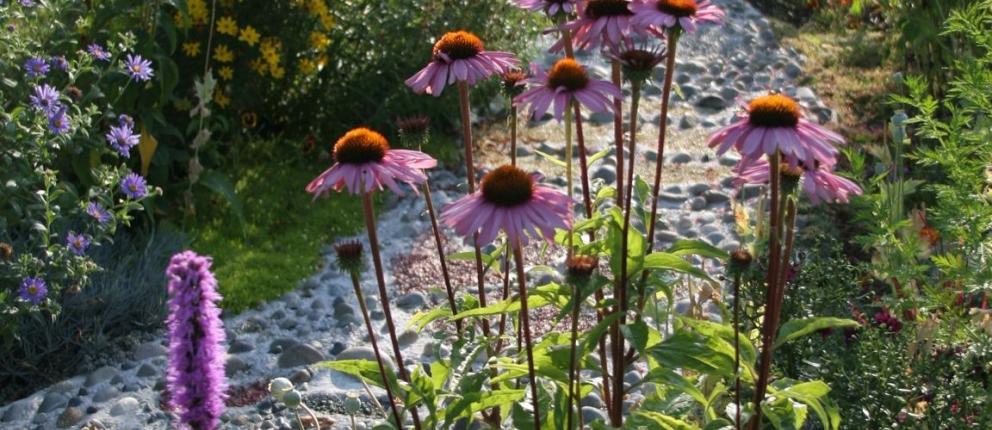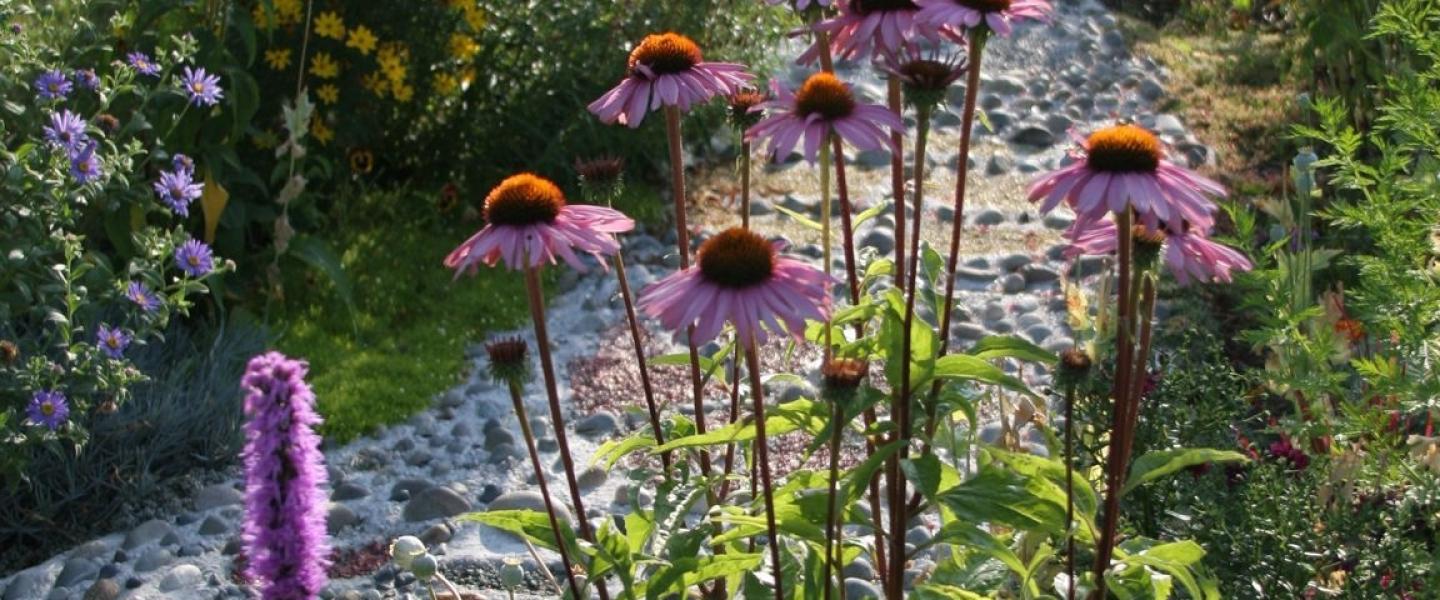Experience the Bastyr Gardens
The Bastyr University Medicinal and Edible Gardens plays a central role in your education. Many students study and cultivate a variety of medicinal plants throughout their life cycle, while other beds are used to cultivate food for students and community projects. Plants are harvested at their seasonal peak for creating medicinal extracts and for use in classes. Some are also donated to community groups.
The gardens play a central role in student learning for Botanical medicine classes under the guidance of the garden director and assistant garden manager who both have many years of experience to offer specialized knowledge in growing and tending to medicinal plants.
Thanks to generous grant funding, Bastyr was able to offer educational opportunities free of charge for students at Tribal and Title I schools.
The garden is designed, cultivated and managed by students and volunteers under the guidance of the garden manager and assistant garden manager with a combined total over 30 years of experience.
In spring 2012, Bastyr University unveiled the Sacred Seeds Ethnobotanical Trail, part of an international project that aims to help communities stay connected to native plants. The living “classroom” will be used to teach visitors about identification, seed saving and cultivation of native plants, while the Sacred Seeds Virtual Education Portal offers online ethnobotany resources including take-home curriculums and virtual field trips designed for K-12 students.
The Sacred Seeds Trail preserves ethnobotanical knowledge of how native plants have been and are used for food, medicine and ceremonies by the original Stewards of the Puget Sound. The trail is part of an ongoing project rename the plants in Lushootseed with audio files so that the names can be heard as well as seen.
Sacred Seeds Virtual Education Portal
The mile-long trail connects a series of native plant meadows and gardens to the nearby forest and wetland, advancing the University’s landscape as an educational resource for the entire community, including:
- Local native tribes of the Peoples of Cascadia
- K-12 faculty and students
- Herbalists
- Horticultural societies
- Bicycle associations
- Other colleges and university student populations
- Garden clubs
- All Bastyr University visiting neighbors and friends
Adjacent to the garden is the Bastyr reflexology path, the first public reflexology path in North America. Based on wisdom from ancient Egypt, India and China, reflexology paths massage and stimulate acupressure points in the soles of the feet connected to various energy meridians of the body.
The pressure of stones under bare feet combines with gravity to provide a therapeutic exercise that stimulates health. Bastyr's 65-foot path features smooth native Northwest river rock artistically embedded in cement. A handrail provides stability and improves accessibility, particularly for older walkers.
Private tours from seasoned herbalists at the University are available for scheduling from 10-2 Tues-Thursday. Rates start at a minimum of $50 for non-profit groups. Tour donations support special projects in the garden. Please contact [email protected] to find out more.
For more information or to schedule, call 1-425-896-6728 or email [email protected]
We are honored to have had an Advisory Committee steer the Sacred Seeds Project at Bastyr. Our Advisory Committee included Michael Evans (Snohomish), Sheila McCoy Hillaire (Tulalip) and Valerie Segrest (Muckleshoot). Please email [email protected] to find out more
Ethnobotany Adventures can take two forms: Video Field Trips and Written Lesson plans that can be turned into self-led adventures.



